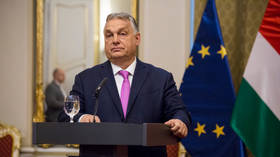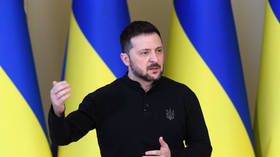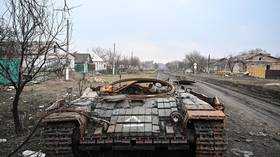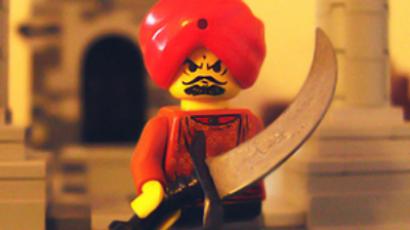Israel remains “immune” to war crimes tribunal
A year after Israel's devastating operation in Gaza, Palestinians are mourning its victims. The war claimed the lives of 1,400 Palestinians, according to human rights groups on both sides, and 13 Israelis.
Hamas supporters took to the streets of Gaza to mark the anniversary of the war that lasted three weeks from the end of December 2008 to January 2009.
Even now, the war and its aftermath remain largely overlooked by the international community. Some say it is because there are double standards when it comes to accusing countries of war crimes.
Nearly twelve months after “Operation Cast Lead” in Gaza, accusations of war crimes still hang over the Israeli army. This is of no surprise, according to Israeli lawyer Yoram Sheftel. He defended John Demjanjuk, who stood trial in Israel for war crimes against Jews. In one of the country’s most important cases, Sheftel convinced the judges that Demjanjuk was not the Nazi camp guard responsible for killing nearly 30,000 Jews in World War Two.
Sheftel is a controversial figure in Israel, but no one disputes he knows his law. He is convinced Israel will not have to answer charges of war crimes in front of the international courts for what it did in Gaza.
“I dislike the idea that only nations like Serbia and Rwanda will be brought to The Hague. There is a lot of hatred against Serbia, which in a sense they earned quite rightfully. But they are a very weak nation politically, whoever commits such or similar acts belonging to strong nations will never be brought to any justice,” Sheftel says.
It is a view echoed in Serbia where for many years Ljiljana Smajlovic edited the country’s leading daily newspaper, Politika. She says it is nothing more than politics – powerful nations get away with murder whereas weaker ones are held to ransom.
“The countries that co-operate with international tribunals, I’m afraid, are countries that have to do so. If they don’t do that they will not be able to integrate into the wider communities that they belong to. Countries like Israel, who cannot be blackmailed, that have US support, they have no reason to co-operate, because there’s not enough enticement for them, they cannot be touched,” believes Ljiljana Smajlovic.
After the former Yugoslavia disintegrated into war in the 1990s, Belgrade needed funds from Brussels to help recover. In addition to the millions of dollars it received, it is now hoping the European Union will give it 300 million more to help cope with the global economic crisis.
But it comes at a price. Serb lawyer Goran Petronijevic believes that price is his client Radovan Karadzic. The latter is standing trial in the Netherlands for war crimes he allegedly committed during the Bosnian war. Petronijevic says Belgrade handed him over to get closer to Europe.
“International criminal courts have to exist but The Hague tribunal is unfair. It doesn’t judge everyone who appears in front of it equally. As far as Israel goes, it is connected with America and Serbia is not. America has had a monopoly over this area for years – if they say you’re guilty, then you are, regardless of whether it’s true or not,” the lawyer said.
But pressure is mounting against Israel after the United Nations published the Goldstone Report. It says both sides, including the Israeli army, committed war crimes in Gaza.
Over the years there have been calls for Israeli army officers to stand trial. In 2001, former Prime Minister Ariel Sharon was accused by victims of the Palestinian massacres in Lebanon of committing war crimes.
And four years later, Major General Doron Almog was tipped off not to leave his plane when it landed in England as an arrest warrant had been issued against him on suspicion of war crimes his forces committed in Gaza in early 2000.
So far no Israeli has ever stood trial – and whether one ever will depends as much on American support and world opinion as it does on whether or not the crimes actually took place.















